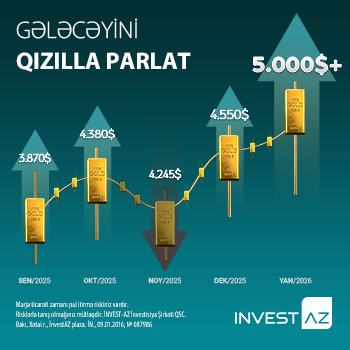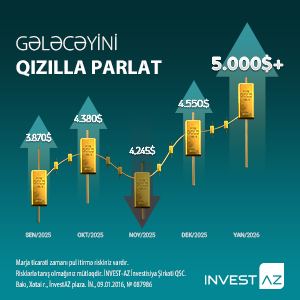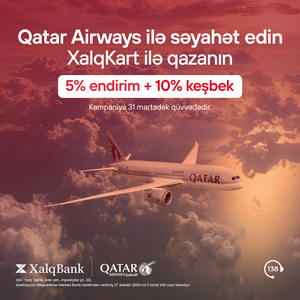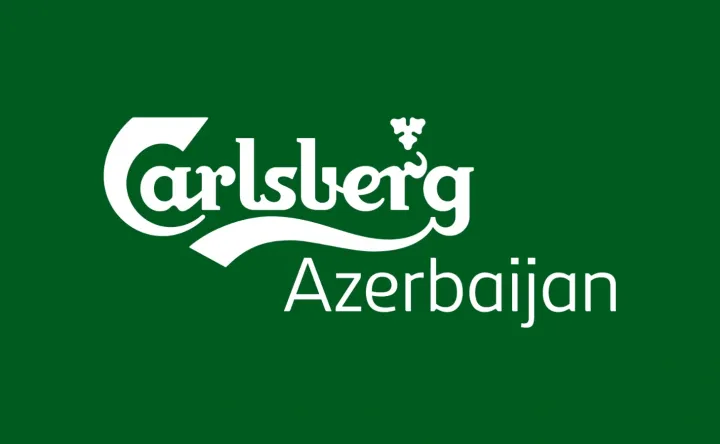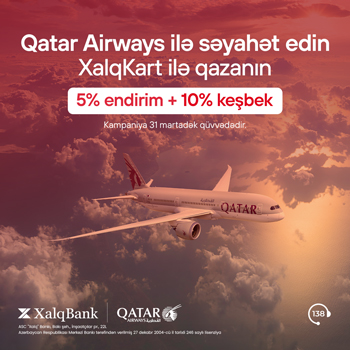"Fitch" Azərbaycanın reytinq üzrə proqnozunu yüksəltdi
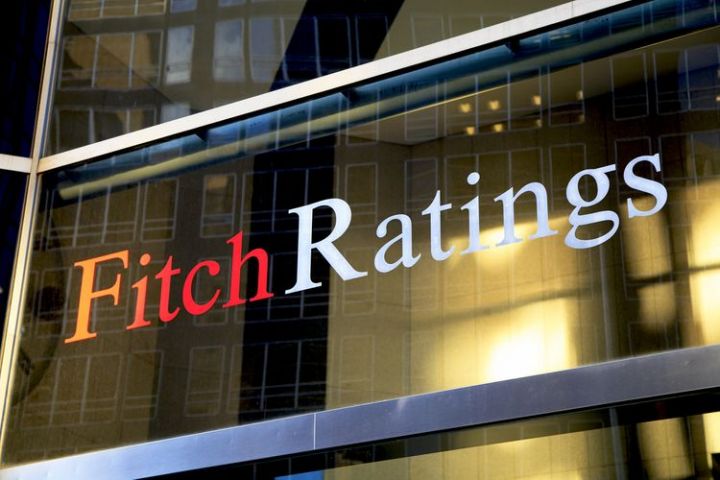
"Fitch Ratings" beynəlxalq agentliyi Azərbaycanın xarici və yerli valyutada emitentin uzunmüddətli defolt reytinqinin (IDR) "BB+" səviyyəsində təsdiq edib, reytinq üzrə proqnozu isə "mənfi"dən "stabil"ə yüksəldib.
"Fitch" agentliyinin yaydığı məlumata görə, ölkənin xarici və yerli valyutada emitentin qısamüddətli defolt reytinqi "B" səviyyəsində təsdiq olunub. Reytinqin gücü COVID-19 pandemiyası fonunda özünü qoruyub və hazırda neftinqiyməti üzrə "Fitch"in yeni yüksək proqnozu tərəfindən dəstəklənir. Yeni COVID-19 dalğası və ya Dağlıq Qarabağdakı hərbi münaqişənin yenilənməsininsuveren maliyyə buferlərinə mənfi təsir etməsi riski noyabrdan bəri azalıb.
"Reytinq Azərbaycanın çox güclü xarici sektorunun statistikası, aşağı dövlət borcu və Neft Fondunun böyük aktivləri hesabına yaranan maliyyələşdirmə çevikliyi və biznesinəlverişli mühiti ilə dəstəklənir. Bank sektorunun yüksək dollarlaşması və karbohidrogen sektorundan asılılıq (ÜDM-in təxminən 40%-i, ixracın 86%-i və maliyyə gəlirlərinin üçdə ikisini təşkil edir) reytinqə mənfi təsir göstərir", -deyə agentliyin analitikləri bildirir.
Qeyd edək ki, "Fitch" Azərbaycanın ölkə tavanını və uzunmüddətli üstün hüquqa malik təminatsız öhdəlikləri reytinqini "BB+" səviyyəsində qiymətləndirir.
Marja.az Telegramda: https://t.me/marjaaz
XXX
Fitch Revises Azerbaijan's Outlook to Stable; Affirms at 'BB+'
Fitch Ratings has revised the Outlook on Azerbaijan's Long-Term Foreign-Currency Issuer Default Rating (IDR) to Stable from Negative and affirmed the IDR at 'BB+'.
KEY RATING DRIVERS
The revision of the Outlook reflects the following key rating drivers and their relative weights:
MEDIUM
The strength of the sovereign balance sheets has been preserved during the pandemic and is supported by upward revisions of Fitch's oil price forecasts in the past six months, further easing the risk of a disorderly macroeconomic adjustment. The risk of another Covid-19 wave or renewal of military conflict in Nagorno-Karabakh negatively impacting sovereign financial buffers has also receded since our previous review in November.
Sovereign foreign-currency assets ended 2020 at USD49.9 billion, USD0.3 billion higher than end-2019, of which the sovereign wealth fund (SOFAZ) comprises USD43.6 billion. External pressures have dissipated since USD2.5 billion of SOFAZ FX holdings were drawn down in March and April 2020 to support the 1.7AZN/USD exchange rate, and net demand for FX has been stable. Annual SOFAZ FX sales (which are determined by the budget transfer amount) totalled USD7.3 billion in 2020, USD0.7 billion higher than in 2019. SOFAZ assets marginally increased in 2020 as strong investment returns, helped by a rise in gold prices, offset the budget transfer and drag from lower oil prices.
Fitch forecasts the current account returns to surplus, of 5.9% of GDP in 2021 and 4.7% in 2022 (following a 9.6pp deterioration in 2020 to a deficit of 0.5% of GDP), largely reflecting the higher oil price. Net FDI is also projected to recover to average 1.7% of GDP in 2021-2022. We forecast the sovereign net foreign asset position increases to 84.9% of GDP at end-2022 from 83.1% at end-2020, compared with the 'BB' median of -3.7%. The risk of a disorderly devaluation, already assessed as low at our previous review, has fallen further.
The ceasefire agreement over Nagorno-Karabakh and the presence of a Russian military peacekeeping force, which we expect will be retained for an extended period, make a return to conflict with Armenia less likely. However, an ultimate political settlement including advancing objectives of reopening borders and infrastructure investment to improve connectivity between Azerbaijan, Armenia and neighbouring countries is politically challenging and also depends on the outcome of elections in Armenia. The government attaches a high political priority to development spending in the territories reclaimed during the 44-day war but there is a large degree of uncertainty over its pace and scale.
Fitch forecasts the general government deficit narrows from 6.5% of GDP in 2020, to 0.2% in 2021 and 0.7% in 2022 (which compares favourably with the 'BB' medians of 5.2% and 3.6%). This is driven by strong revenue growth due to the higher oil price and to a lesser extent, a gradual rise in OPEC plus production quotas and the recovery in non-oil GDP (with budgeted SOFAZ transfers unchanged on 2020). We assume additional expenditure on the reclaimed territories totals 1.9% of GDP in 2021 (an under-execution of the budgeted amount of 2.6%) and 2.2% of GDP in 2022, and that the large majority of the Covid-19 support package (totalling near 2.4% of GDP in 2020) is unwound by 2H21.
General government debt/GDP, which rose 2.4pp in 2020 to 21.4% is projected to decline to 17.6% at end-2022, and is well below the current 'BB' median of 60%. The government plans to introduce a revised fiscal rule taking effect in 2022, which we anticipate will comprise an annual reduction in the non-oil primary balance, a debt target, and USD0.2 billion annual decline in the SOFAZ transfer to the budget. Credible and consistent implementation could help to anchor public finances and preserve buffers in the medium term.
The level of government on-lending and guarantees was broadly unchanged over the last year, at 31.5% of GDP at end-1Q21, close to three-quarters of which comprises gas investment projects and the 2017 restructuring of International Bank of Azerbaijan (IBA; B/Positive). The government has taken a first step towards improving corporate governance in state-owned enterprises through consolidation of reporting and monitoring in the newly-established Azerbaijan Investment Holding, but a material reduction in risk will require progress in their restructuring. Contingent liability risk from the state oil company SOCAR is mitigated by a low oil production break-even price averaging around USD15/b, but its large FX mismatch is a source of vulnerability.
Azerbaijan's 'BB+' IDRs also reflect the following key rating drivers
The rating is supported by Azerbaijan's very strong external balance sheet, low public debt and strong financing flexibility from large sovereign wealth fund assets, as well as favourable ease of doing business indicators. Set against these factors are weak governance indicators and lack of predictability and transparency of policy-making, especially in relation to the exchange rate regime, which increases the risk of policy missteps and disruptive adjustments to shocks. High banking sector dollarisation and dependence on the hydrocarbon sector (accounting for near 40% of GDP, 86% of exports, and two-thirds of fiscal revenues) also weigh on the rating.
GDP contracted 4.3% in 2020 and Fitch forecasts growth of 2.1% in 2021 and 2.9% in 2022, below the projected 'BB' median of 4.2% growth. A gradual increase in oil production (in line with Azerbaijan's OPEC plus quota) and recovering non-oil GDP (which fell 2.6% last year) will support strengthening activity from 2H21. Azerbaijan's current Covid-19 wave has peaked at around half the level of December's spike and we assume economic restrictions remain limited, also supported by the vaccination rollout, currently 14 doses per hundred people. Oil and gas production capacity is expected to be broadly flat in 2022 (as maturing oil extraction is offset by growth in the gas sector) and to gradually decline thereafter. Fitch anticipates there will be only limited reform progress, and that structural rigidities and impediments to competition will constrain faster growth in non-oil FDI inflows and in economic diversification.
The banking sector is relatively weak, reflected by Fitch's Banking System Indicator (BSI) score of 'b'. However, there has been an improvement in recent years in the sector's credit fundamentals, and in April Fitch revised the outlook on the operating environment from negative to stable. The deposit dollarisation ratio has steadily fallen, to 55% at end-1Q21 from 61% at end-2019, but is still well above the 'BB' median of 26%. Azerbaijan's largest bank, IBA, is constrained by a large open currency position, equivalent to 77% of regulatory capital at end-1Q21 (albeit down from 114% a year earlier). The sector is well-capitalised with a Tier 1 ratio of 22%, and the non-performing loan ratio fell to 6.2% at end-1Q21 from 8.3% at end-2019. We expect healthy pre-impairment profit will absorb pressure on asset quality (due to the 8% of loans restructured due to the pandemic) as government support is unwound.
ESG - Governance: Azerbaijan has an ESG Relevance Score (RS) of '5' for both Political Stability and Rights and for the Rule of Law, Institutional and Regulatory Quality and Control of Corruption, as is the case for all sovereigns. Theses scores reflect the high weight that the World Bank Governance Indicators (WBGI) have in our proprietary Sovereign Rating Model. Azerbaijan has a low WBGI ranking at the 28th percentile, reflecting very poor voice and accountability, relatively weak rights for participation in the political process, uneven application of the rule of law and a high level of corruption.
RATING SENSITIVITIES
The main factors that could, individually or collectively, lead to positive rating action/upgrade are:
- Macro: Improvements in the transparency and predictability of Azerbaijan's policy framework, including exchange rate policy, that strengthens the country's ability to manage external shocks and reduces macro volatility.
- External Finances: Marked strengthening of the external balance sheet, for example due to sustained higher-than-forecast oil prices.
- Public Finances: Greater confidence in a sustained strengthening of the public balance sheet, for example based on a credible medium-term fiscal strategy and higher and more diversified GDP growth.
The main factors that could, individually or collectively, lead to negative rating action/downgrade:
- External Finances: Prolonged lower oil prices sufficient to have a material negative impact on external buffers.
- Macro: Developments in the economic policy framework that undermine macroeconomic stability, such as contributing to a rapid erosion of the sovereign's external balance sheet or disorderly devaluation of the manat exchange rate, with adverse effects on the economy, banking sector and public finances.
SOVEREIGN RATING MODEL (SRM) AND QUALITATIVE OVERLAY (QO)
Fitch's proprietary SRM assigns Azerbaijan a score equivalent to a rating of 'BB' on the Long-Term Foreign-Currency (LT FC) IDR scale.
Fitch's sovereign rating committee adjusted the output from the SRM to arrive at the final LT FC IDR by applying its QO, relative to SRM data and output, as follows:
- External Finances: +1 notch, to reflect large SOFAZ assets, which underpin Azerbaijan's exceptionally strong foreign currency liquidity position and the very large net external creditor position of the country.
Fitch's SRM is the agency's proprietary multiple regression rating model that employs 18 variables based on three-year centred averages, including one year of forecasts, to produce a score equivalent to a LT FC IDR. Fitch's QO is a forward-looking qualitative framework designed to allow for adjustment to the SRM output to assign the final rating, reflecting factors within our criteria that are not fully quantifiable and/or not fully reflected in the SRM.
BEST/WORST CASE RATING SCENARIO
International scale credit ratings of Sovereigns, Public Finance and Infrastructure issuers have a best-case rating upgrade scenario (defined as the 99th percentile of rating transitions, measured in a positive direction) of three notches over a three-year rating horizon; and a worst-case rating downgrade scenario (defined as the 99th percentile of rating transitions, measured in a negative direction) of three notches over three years. The complete span of best- and worst-case scenario credit ratings for all rating categories ranges from 'AAA' to 'D'. Best- and worst-case scenario credit ratings are based on historical performance. For more information about the methodology used to determine sector-specific best- and worst-case scenario credit ratings, visit https://www.fitchratings.com/site/re/10111579.
KEY ASSUMPTIONS
Fitch forecasts Brent Crude to average USD58/b in 2021 and USD53/b in 2022.
Fitch assumes that Azerbaijan will continue to experience broad social, political, economic, and financial stability, and that there will not be a renewed and prolonged conflict with Armenia over Nagorno-Karabakh.
REFERENCES FOR SUBSTANTIALLY MATERIAL SOURCE CITED AS KEY DRIVER OF RATING
The principal sources of information used in the analysis are described in the Applicable Criteria.
ESG CONSIDERATIONS
Azerbaijan has an ESG Relevance Score of '5' for Political Stability and Rights as World Bank Governance Indicators have the highest weight in Fitch's SRM and are therefore highly relevant to the rating and a key rating driver with a high weight.
Azerbaijan has an ESG Relevance Score of '5' for Rule of Law, Institutional & Regulatory Quality and Control of Corruption as World Bank Governance Indicators have the highest weight in Fitch's SRM and are therefore highly relevant to the rating and are a key rating driver with a high weight.
Azerbaijan has an ESG Relevance Score of '4' for Human Rights and Political Freedoms as the Voice and Accountability pillar of the World Bank Governance Indicators is relevant to the rating and a rating driver.
Azerbaijan has an ESG Relevance Score of '4' for Creditor Rights as willingness to service and repay debt is relevant to the rating and is a rating driver for Azerbaijan, as for all sovereigns.
APA, Fitchratings
Müştərilərin xəbərləri
SON XƏBƏRLƏR
- 1 ay sonra
- 2 həftə sonra
-
2 gün sonra
Bazara iki istiqraz çıxarılır - Dollar ilə 9%, Manat ilə 14% gəlir təklifi
-

- 3 saat əvvəl
-
3 saat əvvəl
“Qırmızı Ürəklər” Təhsil Təqaüd Proqramının qalibləri donorlarla görüşüb
- 3 saat əvvəl
- 3 saat əvvəl
-
3 saat əvvəl
İqtisadiyyat Nazirliyində “Microsoft” şirkətilə əməkdaşlıq imkanları müzakirə olunub
-
3 saat əvvəl
"Nazirliklər və digər dövlət qurumları tətbiqlərini (aplikasiyalar) ləğv etməlidirlər"
-
4 saat əvvəl
İlham Əliyevin sədrliyi ilə müşavirə keçirilib - TAM VERSİYA
-
4 saat əvvəl
BP "Şəfəq" günəş enerjisi layihəsində 10 % iştirak payını satıb
- 4 saat əvvəl
Son Xəbərlər

Azərbaycanda Vakansiyalar - Azvak.az
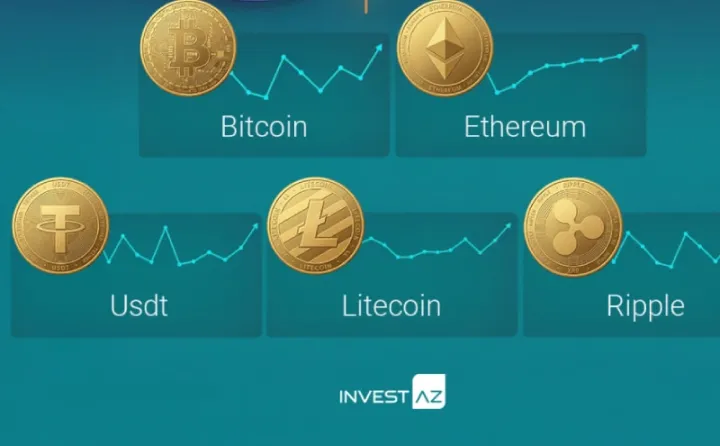
Kriptovalyuta ticarəti kursu

"Kinobox" və "Mahnı TV"yə lisenziya verilib

Azərbaycanda illik inflyasiya sürətlənib
İqtisadiyyat Nazirliyində “Microsoft” şirkətilə əməkdaşlıq imkanları müzakirə olunub

"Nazirliklər və digər dövlət qurumları tətbiqlərini (aplikasiyalar) ləğv etməlidirlər"
Ən çox oxunanlar

İlham Əliyevin sədrliyi ilə müşavirə keçirilib - TAM VERSİYA

“Zira Olives” Sumqayıtda mağaza açır
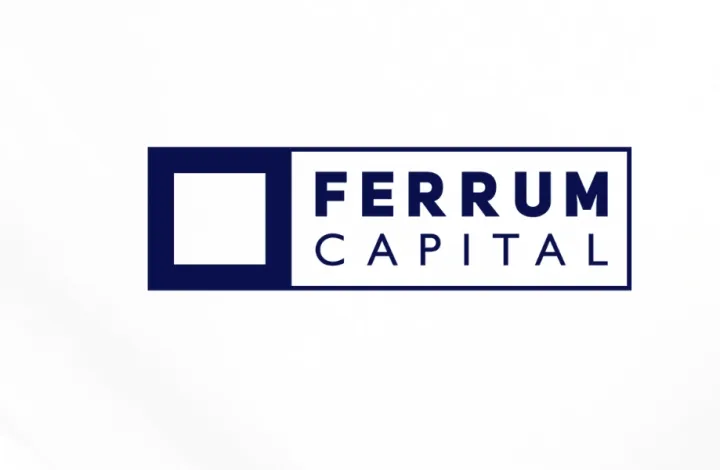
"FERRUM Kapital”ın 4 milyon manat borclanacağı tarix açıqlanıb

Dolların sabah üçün rəsmi məzənnəsi müəyyən olunub

"PAŞA Real Estate" qlobal aktivlərini "One&Only" Hudson Valley, Nyu-York ilə genişləndirir

Yeni kart təqdim edildi - 15 min manatadək komissiyasız nağdlaşdırma, kart qalığına 8% gəlir
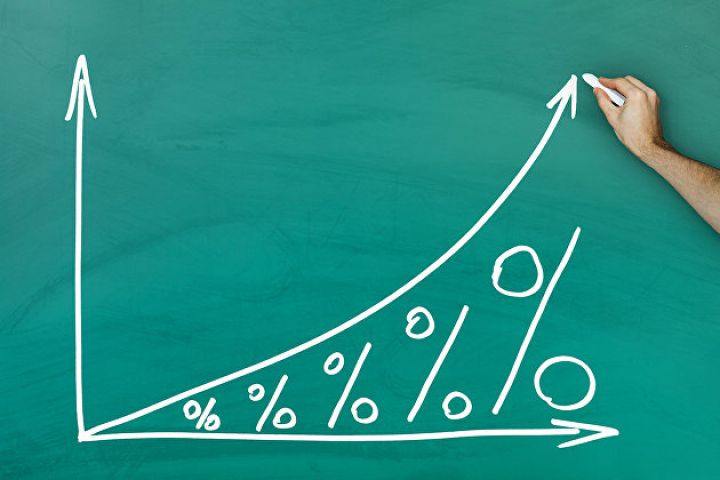
Azərbaycan iqtisadiyyatı 1,7 faiz artıb





